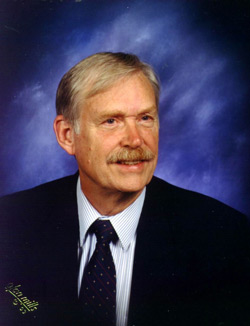Following is another thought-provoking missive by my friend, Tom Fiske:
 As I stood on the stage, talking and showing slides of people and things, I realized there was very little difference between what I was doing and what our early ancestors did. You know, a bunch of Homo Sapiens sitting around the camp fire at night talking about the hunt that day or the weather in a far-off place, or how to make a superior weapon. People of that time didn’t write, so that was their method of passing on technological information. You know, things like, “Don’t eat yellow snow.”
As I stood on the stage, talking and showing slides of people and things, I realized there was very little difference between what I was doing and what our early ancestors did. You know, a bunch of Homo Sapiens sitting around the camp fire at night talking about the hunt that day or the weather in a far-off place, or how to make a superior weapon. People of that time didn’t write, so that was their method of passing on technological information. You know, things like, “Don’t eat yellow snow.”
A few days ago I found myself making a speech to a group of 30-40 electrical engineers and others about the atom bomb. Not so much did I talk about the technical stuff, but about the people and the process involved in making the bomb and dropping it. It was part of my latest book. (I certainly did not start in that direction, but somehow the book took me that way.)
And then last night my wife and I were watching a TV science program about Neanderthals. The program host mentioned how large their brains were and in fact it appears some were twenty per cent larger than ours. He also discussed their short lives, and a switch went on inside my twenty per cent smaller brain.
You see, the Neanderthals died out some 30,000 years ago and left us Homo Sapiens in charge. No one really knows why that happened. But I got to thinking about the short lives of the Neanderthals, how little knowledge they were able to pass on from their elders to their younger generations. They just did not live long enough to pass on important information, while perhaps we did.
In my speech, that is what I was doing — passing on information in the grand old style of the past, except for the cold air at their backs, the warm flames in their faces and the occasional snap of a branch when fire caused it to fall apart. It seemed that if Homo Sapiens lived longer, the more they were able to pass on information, and the greater became their storehouse of technology.
Even in the time of Jesus, people did not live long. I was told that at age thirty, Jesus’s body was worn out from hard physical labor, and he was retired. So he traveled from place to place and spoke to people, passing on information. But there was a difference by the time Jesus was born. Writing had been invented perhaps three thousand years prior. Names, dates, places, philosophies and technologies could be passed on through writing. Folks did not have to live to be age forty and more in order for information to be transmitted to the next generation. Homo Sapiens had secured its place in the world.
We have learned over the last hundreds of thousands of years how important it is to feed the next generation with what we have learned in this generation and in previous generations. We have run out of places to store that knowledge, but that is another subject altogether.
Our genealogies, for many reasons, have become part of the lore that is passed on from generation to generation. In many cases they contain important information that we don’t recognize. To put it another way, if our genealogies do not contain worthwhile information, they probably should not be collected at all. But they do, and at some level in our thought processes we know it. That is one of the reasons we bother to collect the information and to protect it, so we can pass it on.
Sure, the next generation yells and complains about each dose of genealogy. I bet the early Homo Sapiens’ kids yelled and screamed at each campfire speaker who told them how to start a fire with the latest technology. But their elders knew it was important, useful information.
No, I cannot identify the importance of all genealogical knowledge right now. But in several generations that importance might be revealed. It is just that I go through the motions because somewhere in the back of my twenty per cent smaller brain, I sense that it is important to know the facts.